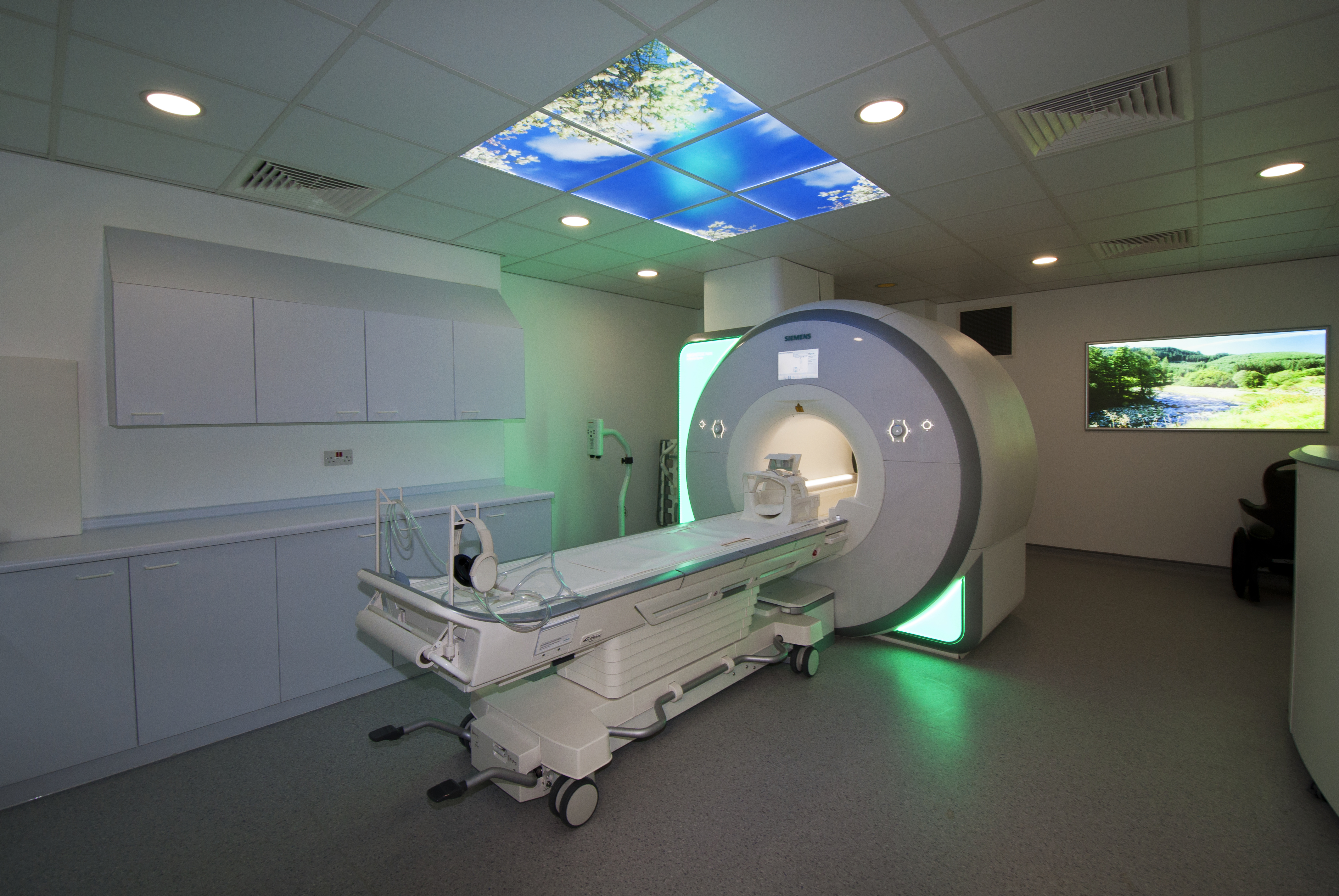MRI scan

Will anything prevent me from having an MRI scan?
- MRI uses a very powerful magnetic field which can cause you harm if you have anything metallic, magnetic or electrical inside or attached to the outside of your body - please make sure MRI staff are made aware of this.
- You will receive a safety questionnaire in the post with your appointment letter. Ensure you fill this in as soon as possible and follow any instructions to contact the MRI department. Make sure you bring this with you to the appointment otherwise you could encounter a delay.
- If you have ever had a history of metal fragments in your eyes, it may be necessary to have an x-ray taken of your eyes to ensure there are no fragments left. The MRI department will arrange this after discussion with you.
- If you have a cochlear implant you will not be able to have an MRI scan.
- For female patients - if you are or might be pregnant you must make sure the doctor referring you or a member of staff in the radiology department is made aware soon as possible and in advance of your appointment. MRI scans may not be advisable in early pregnancy, unless there are special circumstances.
- If you suffer badly from claustrophobia you can arrange to visit the department to have a look at the MRI scanner. If you are still anxious you could ask your doctor to prescribe a sedative (if appropriate).
What are the side effects?
Magnetic resonance imaging (MRI) uses a very strong magnet, radio waves and computer to obtain highly detailed pictures of the inside of your body. It does not use x-rays and there are no known side effects.
Are you required to make any special preparations?
- Please read your letter carefully to check the location of your appointment - we have scanners on more than one site.
- Allow plenty of time to get here - if you arrive late it could result in your scan being postponed. Please be aware that parking at the hospital can be difficult.
- Unless your appointment letter advises otherwise, you don't need to make any special preparation for an MRI scan. For all abdominal and pelvic scans you are asked not to eat or drink for four hours prior to your scan.
- Continue to take prescribed medication and your usual pain relief.
- Make sure all body piercings are removed and try to leave jewellery at home (wedding rings do not need to be removed).
When you arrive
- Please go to the reception desk in the MRI department and use the self check-in screen or speak to the receptionist.
- Take a seat in the waiting room - you will be greeted by a radiographer or radiographic department assistant who will ask for your completed safety questionnaire, explain the procedure to you and ask you to change into a hospital gown.
- There are secure lockers for your valuables however please try to limit what you bring with you.
Can you bring a relative or friend?
You are welcome to bring someone with you. If you would like someone to go into the scan room with you they will need to complete their own safety questionnaire and be considered safe to enter the MRI environment. (Ask your relative or friend to look at your safety questionnaire to see if they feel they are the best person to accompany you.) They can complete their own safety questionnaire on arrival when you are changing.
Children must be accompanied and supervised by an adult
Who will you see?
You will be cared for by a small team of radiographers and radiographic department assistants who will perform the examination. The radiologist may look at the pictures on the computer screen to check they are satisfactory.
What happens during the MRI?
- You will be asked to lie on the scanner couch which moves into the open ended tube. The part of your body being scanned must be at the centre of the tube and you will enter the scanner either head first or feet first depending on the area to be scanned. This helps produce high quality images.
- The scanner makes a variety of very loud noises during the scan, this is normal. You will be offered ear plugs or headphones and will have the choice to listen to the radio or other music during your scan.
- You will be given a call bell to keep in your hand to attract attention during the scan although the radiographer will be watching you throughout .
- The staff will be situated in the control room but you will be able to talk to them via an intercom.
- You may be given an injection of contrast medium (dye) which helps to produce a more detailed image. The contrast medium would be injected into a vein your arm.
- If you feel uncomfortable or worried at any time mention it immediately to the radiographer.
How long will it take?
The process of taking the images usually lasts between 30 to 90 minutes. Sometimes scans are delayed due to emergency patients. You should allow up to two hours for the appointment.
When will you get the results?
Results will not be given immediately after the scan. The images will be looked at by the radiologist - a specialist doctor trained to interpret scans - who will write a report on what they see. The results will then be sent to the doctor who referred you. These results will be discussed with you alongside any other tests you may have had at the follow up appointment with your doctor.
For more information, please see NHS: MRI scan.
Adapted from an original document compiled by the Royal College of Radiologists.